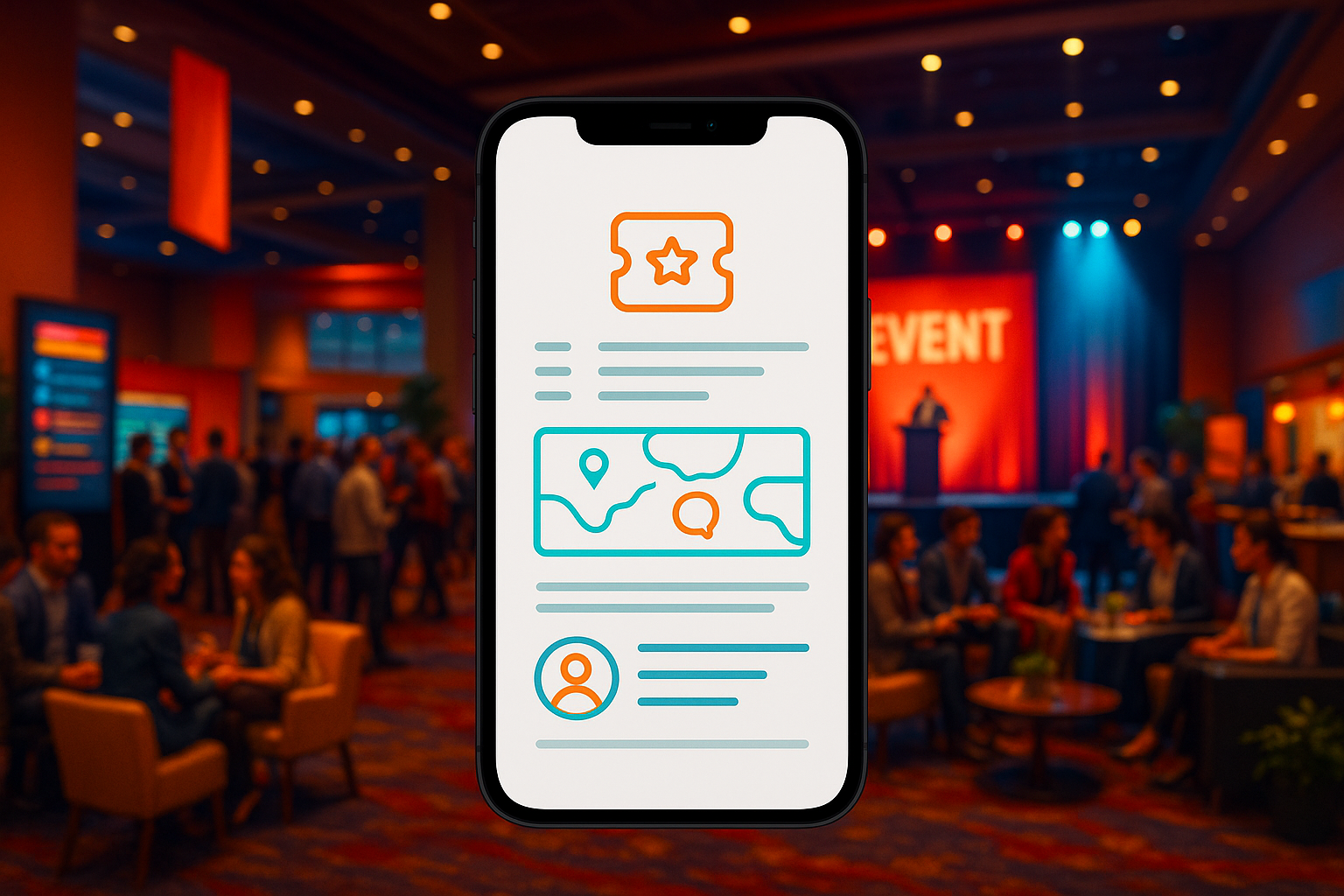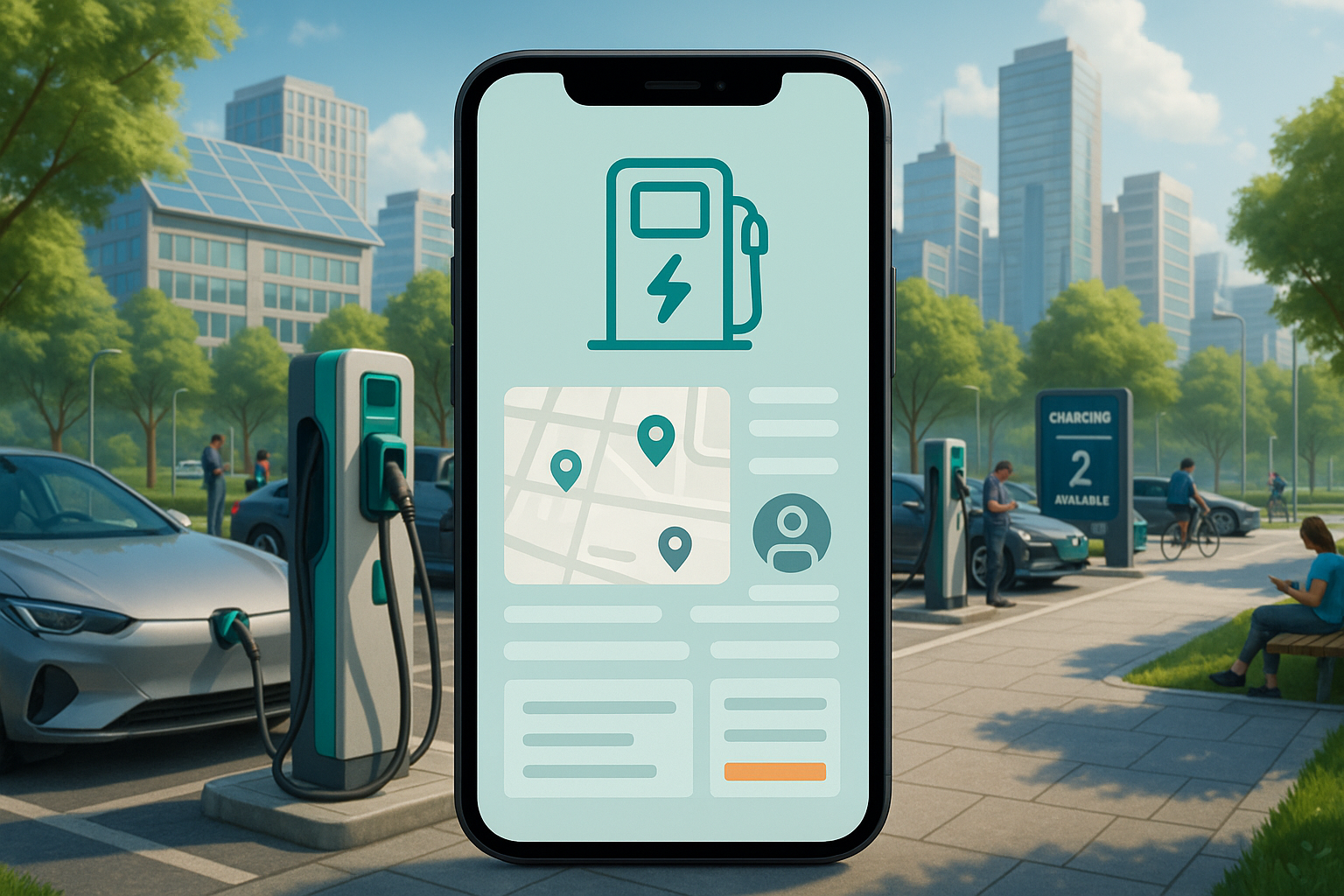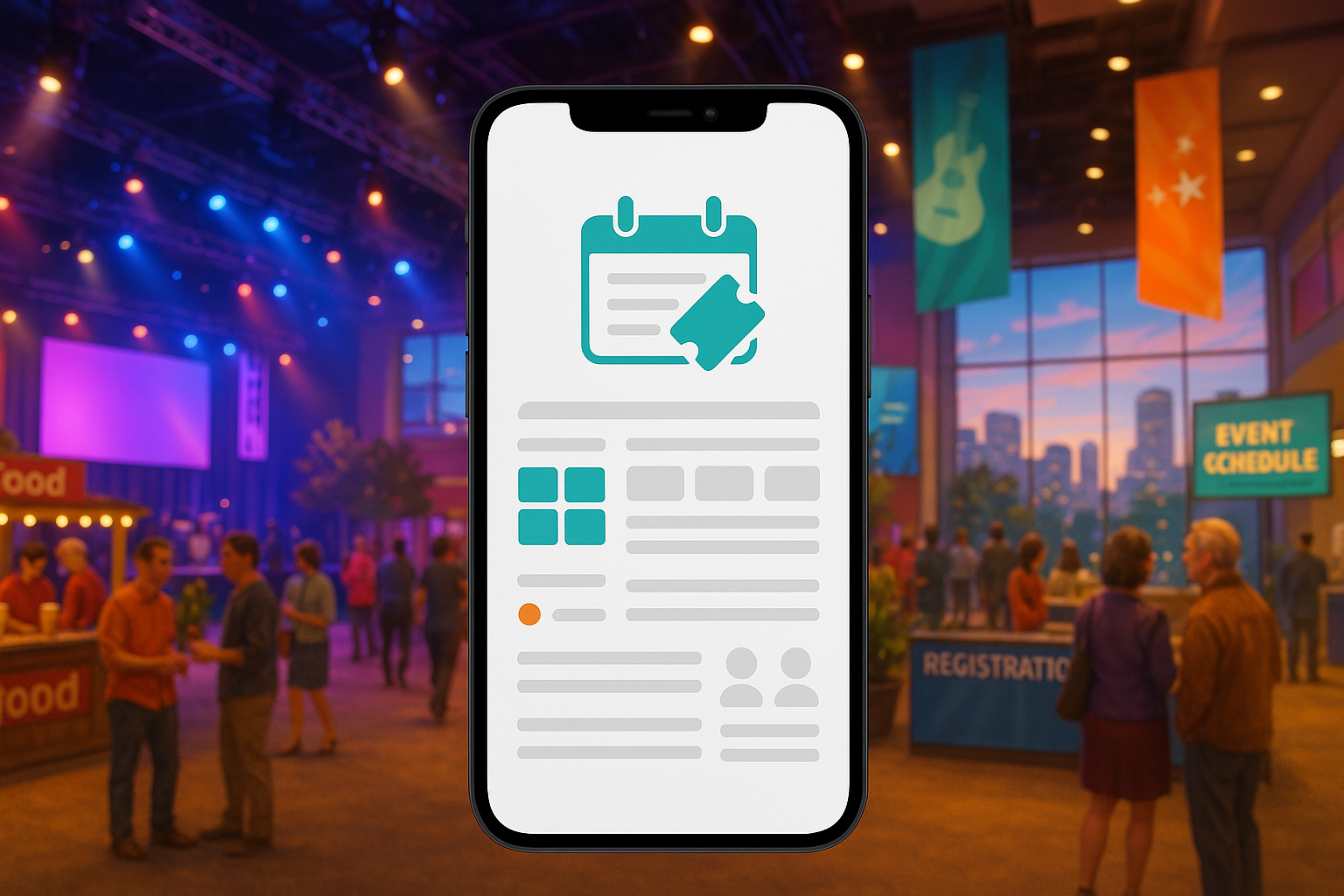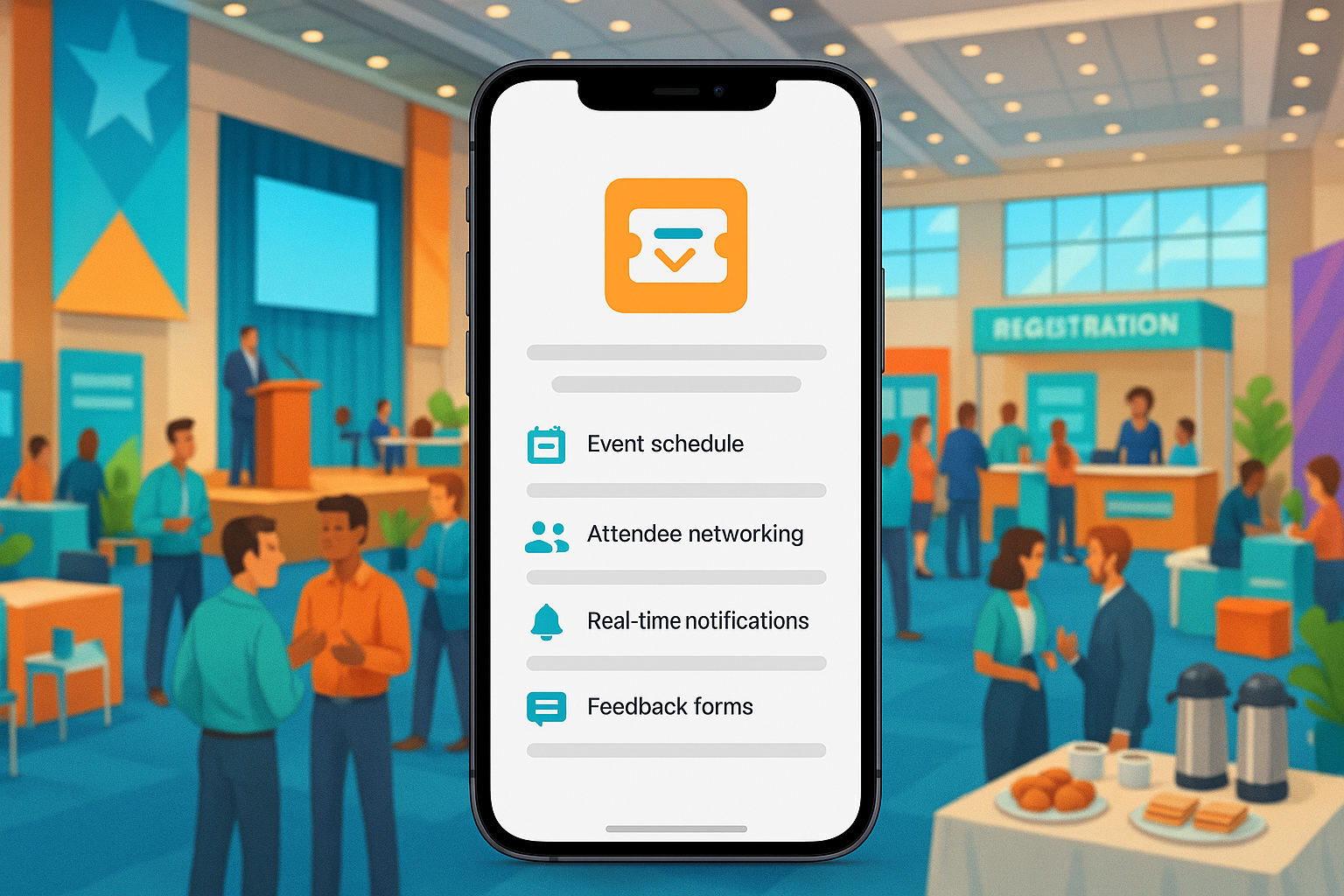Introduction
In today’s digitally-driven world, hosting a successful event requires more than just a great venue and compelling speakers. Attendees now expect a seamless, interactive, and personalized experience, which is increasingly delivered through a dedicated mobile application. An event app can be the central hub for communication, engagement, and logistics, transforming a standard event into an unforgettable experience. However, the path to developing such an application is fraught with complexity. From integrating robust ticketing systems and real-time notification engines to developing sophisticated networking algorithms and gamification features, the technical hurdles can be immense for any organization. Attempting to build a comprehensive event app in-house often leads to budget overruns, missed deadlines, and a final product that falls short of expectations.
This article serves as a comprehensive guide to event app development. We will dissect what constitutes a modern event app, exploring the essential features that drive user engagement and organizer efficiency. We will also examine the inherent difficulties of in-house development, explore the different types of event applications available, and provide a realistic breakdown of development costs. Furthermore, we will highlight top development companies that specialize in this domain. As a leading US AI-powered app development firm, we at MetaCTO have extensive experience building complex, feature-rich mobile applications. We understand the nuances of creating software that not only meets but exceeds user expectations, and we will show you how our expertise can help you navigate the development process and launch a successful event app.
What is an Event App?
At its core, an event app is a mobile application designed to enhance the experience of event attendees, while simultaneously providing organizers with powerful tools for management, communication, and data analysis. It acts as a digital companion for the event, putting schedules, speaker information, venue maps, and networking opportunities directly into the hands of every participant. A well-designed event app moves beyond a simple digital brochure; it creates an interactive ecosystem that fosters community, facilitates connections, and delivers measurable value to attendees, sponsors, and organizers alike.
To truly understand the power of a modern event app, it’s essential to break down the key features that define them. Based on the robust platform offered by Eventify, we can see a clear picture of what a comprehensive solution entails.
Comprehensive Ticketing and Registration
A seamless entry process sets the tone for the entire event. An advanced event app streamlines this from start to finish.
- Integrated Ticketing System: A full-service system handles all ticketing needs, from creation to sale. This includes the ability to create waitlists from a central dashboard and automatically generate tickets upon guest confirmation.
- Custom Branding: The app should allow for complete brand integration. This means using a custom domain and adding brand collateral, such as logos and taglines, directly onto the tickets and within the app interface.
- Exhibitor Management: The platform shouldn’t just be for guests. A powerful app allows organizers to onboard exhibitors directly through the dashboard, providing them with independent portals that can even include virtual booth mapping options.
- Promotions and Discounts: Organizers can easily add discounts, create coupon codes, and run special offers directly from the platform before selling tickets, providing flexibility for marketing campaigns.
On-Site Management and Check-In
The logistical challenges on the day of the event can be overwhelming. An event app with on-site management features eliminates many of these obstacles.
- Badge Printing and Scanning: Giving organizers full control over the badge printing and scanning process is crucial. This includes the ability to design and customize event badges through a dedicated dashboard. Attendee data can be autopopulated from the registrant list, allowing for live, on-site printing after a quick confirmation of details.
- Self-Service Check-In: To reduce queues and streamline entry, intuitive software allows attendees and speakers to self-check in at a registration kiosk by simply scanning a secure QR code.
Dynamic Event Content and Scheduling
Content is king, and an event app is the most effective way to deliver it.
- Event Guides and Speaker Profiles: Organizers can create detailed event guides and rich speaker profiles, sharing them directly through the app. This guide serves as a single source of truth for all information pertaining to the event. Each speaker can have their own digital space to showcase achievements, experience, and photos.
- Live Schedule Management: The event schedule is often dynamic. The app allows organizers, speakers, and exhibitors to collaborate on planning, creating, modifying, and broadcasting the schedule. Organizers can update the session calendar and instantly notify attendees of any changes.
Communication and Real-Time Engagement
Effective communication is the backbone of a well-run event.
- Live Notifications: Push notifications are a powerful tool for keeping attendees informed. Organizers can share live updates about session changes, timing reminders, and other important announcements. This is particularly useful for last-minute changes.
- Sponsor Marketing: Notifications can also be used to market sponsor content, providing an additional revenue stream and value proposition for partners.
- Multi-Channel Communication: To ensure no one is missed, hosts can also share notifications via email, covering all critical communication touchpoints.
Intelligent Networking and Matchmaking
One of the primary reasons people attend events is to network. An event app can transform this from a game of chance into a targeted, effective activity.
- AI-Powered Matchmaking: The app can use an algorithm that identifies common tags and interests chosen by attendees during registration. It then “matches” profiles of attendees who are likely to benefit most from networking with each other.
- User-Controlled Networking: While the algorithm provides suggestions, attendees retain full control. They can swipe on profiles, review personal details, and analyze match percentages to decide who they want to connect with, all within the app.
Gamification and Interactive Social Feeds
Keeping attendees engaged throughout the event is key to its success.
- Gamification: Organizers can create exciting challenges for attendees, which can be modified based on the event’s agenda and themes. Participants can be rewarded upon successful completion of these challenges, fostering a sense of fun and competition.
- Private Social Platform: A built-in social feed allows organizers to create a private social network for the event. Here, guests can interact, share quick tidbits, post photos, and continue conversations during and after the event.
- Live Interaction Tools: The social feed, along with other independent features, can host live polls, Q&A sessions, and surveys, gathering real-time feedback and encouraging audience participation during sessions.
Lead Retrieval and Analytics
For exhibitors and sponsors, the primary goal is often lead generation. An app with built-in lead management capabilities is invaluable.
- Secure Lead Scanning: Exhibitors can use simple, secure scanners (often just their own mobile devices) to check in registrants at their booths, capturing credible and accurate registration data. This also helps track the attendance of specific leads.
- Data Integrity: This software can eliminate duplicate entries and prevent fraudulent activity, ensuring the quality of the data collected. Lead data can be retrieved easily without manual intervention.
Sponsorship Showcase and Monetization
An event app opens up new digital real estate for sponsors.
- Digital Sponsorship Slots: Organizers can showcase their sponsors’ best facets within the app, lending them digital spaces and slots to display visual merchandise and branding.
- Product Showcase: A dedicated product showcase feature helps sponsors display their various products. It also provides analytics on which products are grabbing the most eyeballs, offering valuable market feedback. Attendees can access more details about sponsors and their products directly through the app.
Sales Tracking and ROI Analysis
Finally, a successful event is one that meets its financial goals. An event app provides the data needed to measure success accurately.
- Real-Time Sales Tracking: Organizers can quickly track event ticket sales, with assurance that the data is accurate and free of duplication.
- Actionable Insights: Tracking sales and engagement tells organizers, sponsors, and exhibitors which sessions or areas were most successful. This insight is critical for making improvements to ensure better sales and engagement in the future.
- Financial Reporting: Detailed sales reports and analytics dashboards provide the clarity essential for calculating Return on Investment (ROI) and for the financial planning and projections of all future events.
Reasons It Is Difficult to Develop an Event App In-House
While the benefits of a feature-rich event app are clear, the journey of building one is complex. Many organizations underestimate the undertaking, believing their in-house IT team can handle the project. However, the sheer breadth and depth of features described above point to significant development challenges that often make in-house development an impractical and costly endeavor.
The primary difficulty lies in the vast technical expertise required. Building an event app is not a single task; it’s the integration of numerous complex systems. You need backend developers to build a scalable server architecture that can handle thousands of concurrent users sending real-time data. You need frontend developers proficient in both iOS and Android to create a native or cross-platform experience that is smooth and intuitive. You need UI/UX designers to craft an interface that is not just beautiful but also easy to navigate for a non-technical audience. You need database architects to manage user data, schedules, and analytics securely. Furthermore, integrating specialized features like AI-powered matchmaking, live streaming for virtual components, and secure payment gateways requires niche expertise that most in-house teams simply do not possess.
Another major hurdle is resource allocation. An event app project demands a dedicated team. Pulling developers and project managers from their core responsibilities to work on a temporary app project can disrupt daily operations and delay other critical business initiatives. Hiring new, full-time talent for a single project is often not financially viable. The cost extends beyond salaries; it includes software licenses, server costs, and third-party API subscriptions. Without the experience of an agency that builds apps regularly, it’s easy to miscalculate these costs, leading to significant budget overruns.
Time to market is a non-negotiable deadline in the event industry. The app must be fully developed, tested, and deployed in the app stores well before the event date. In-house teams, often juggling multiple priorities and learning as they go, are prone to delays. A single bug or a failed app store submission can jeopardize the entire launch. An experienced development agency, on the other hand, has a streamlined process and understands the intricacies of app store guidelines, ensuring a timely release.
Finally, the work isn’t over once the app is launched. It requires ongoing maintenance and support. Bugs will be discovered, operating systems will be updated (requiring app updates), and user feedback will pour in. An in-house team must be prepared to provide support during the event itself—often outside of normal business hours—and maintain the app long after. This creates a long-term resource drain that many companies are unprepared for. Partnering with a firm like ours ensures that you have a dedicated team for ongoing support and evolution, allowing your team to focus on what they do best: running your business.
Different Types of Event Apps
Not all events require an all-encompassing, feature-laden application. The event management software landscape is diverse, offering a range of solutions tailored to different needs and budgets. Understanding these types can help you determine the right approach for your specific event. Broadly, these applications fall into two main categories.
-
All-in-One Event Management Platforms: These are comprehensive, integrated solutions, much like the feature set described earlier. They aim to be a single source of truth for both organizers and attendees, combining registration, scheduling, networking, engagement, and analytics into one seamless package. Companies like Eventify provide this type of platform, often on a SaaS (Software as a Service) basis. While incredibly powerful, they may offer more functionality than a smaller event requires.
-
Specialized Software Tools: This category includes applications that focus on solving one or two specific problems within the event planning checklist. Organizers can piece together a suite of these tools to create a custom-fit solution. This approach can be more flexible and cost-effective for events with simpler needs.
Some of the common types of specialized event management software include:
- Event Registration and Ticketing Software Tools: These applications focus exclusively on managing the sign-up and payment process. They provide a streamlined way to sell tickets, collect attendee information, and process payments.
- Event Scheduling & Organization Tools: This software helps organizers create, manage, and share the event agenda. It allows for easy updates and can handle complex schedules with multiple tracks and sessions.
- Polling Software: Designed to increase audience interaction during sessions, these tools allow speakers to run live polls and display the results in real time.
- Online Form Builders: These are used to create custom forms for various purposes, such as collecting speaker submissions, gathering post-event feedback, or managing volunteer sign-ups.
- Waiver Software: For events that involve physical activities or potential risks, digital waiver software allows attendees to sign liability waivers electronically, simplifying a crucial legal process.
- Project Management Tools: While not specific to events, general-purpose project management tools are often used by event planners to track tasks, manage deadlines, and coordinate between team members.
Choosing between an all-in-one platform and a collection of specialized tools depends on the scale of your event, your budget, and your team’s technical comfort level. For large, complex events, the seamless integration of an all-in-one solution is often worth the investment. For smaller, more straightforward events, a curated set of specialized tools may suffice.
Cost Estimate for Developing an Event App
One of the most pressing questions for any organization considering an event app is: “How much will it cost?” The answer depends heavily on the complexity and scope of the features you wish to include. Based on industry data, we can outline a general cost breakdown for custom event app development.
| App Complexity | Estimated Cost Range | Key Features Included |
|---|---|---|
| Basic | $10,000 – $30,000 | User registration, event listings & reminders, basic event information, simple ticket booking & payment system. |
| Medium | $30,000 – $60,000 | All basic features plus social media integration, interactive maps & venue information, customizable event pages. |
| Complex | $60,000 – $150,000+ | All medium features plus advanced tools like real-time chat & Q&A sessions, virtual event capabilities (live streaming, virtual booths), and AI/ML features (e.g., matchmaking). |
Basic Event App: $10,000 - $30,000
A basic app serves as a digital guide to the event. It covers the essentials needed to get information to attendees and manage simple registrations. This is suitable for small conferences, local meetups, or single-day events where the primary goal is information dissemination rather than deep interaction. While functional, it lacks the advanced engagement and networking features that define a modern event experience.
Medium-Complexity Event App: $30,000 - $60,000
This tier represents a significant step up in functionality and user experience. The inclusion of interactive maps helps attendees navigate large venues, while social media integration encourages sharing and broadens the event’s reach. Customizable event pages allow for a more branded and visually appealing experience. This level of app is ideal for medium-sized trade shows and corporate events that want to foster a greater sense of community and provide more tangible value to attendees.
Complex Event App: $60,000 - $150,000+
A complex event app is a powerful, enterprise-grade solution designed for large-scale, multi-day conferences, international expos, and hybrid events. The inclusion of real-time chat and Q&A transforms passive presentations into interactive dialogues. Virtual capabilities like live streaming and virtual exhibitor booths are essential for hybrid events, allowing remote attendees to participate fully. The integration of AI and machine learning for features like personalized recommendations and intelligent matchmaking provides a truly cutting-edge experience that can deliver a massive ROI by facilitating high-value connections. The cost can exceed $150,000 depending on the level of customization, the complexity of the AI models, and the scale of the backend infrastructure required.
Top Event App Development Companies
Choosing the right development partner is the single most important decision you will make in your event app journey. An expert partner brings not just coding skills, but also strategic guidance, design expertise, and a proven process to ensure your project’s success.
1. MetaCTO
As a premier AI-powered mobile app development agency, we at MetaCTO specialize in turning ambitious ideas into market-ready applications. With over 20 years of experience and more than 120 successful projects launched, we have a deep understanding of what it takes to build, grow, and monetize mobile apps. Our 5-star rating on Clutch is a testament to our commitment to client success.
Developing a truly great event app requires more than just ticking off a list of features. It demands a holistic approach that considers the user journey, backend scalability, and long-term business goals. This is where our expertise shines. Integrating disparate features like a real-time notification engine, a secure payment gateway, a lead-scanning tool, and a matchmaking algorithm into a single, cohesive app is a significant architectural challenge. It requires careful planning to ensure the systems communicate flawlessly and the app performs reliably under the strain of thousands of users.
Hiring a development agency like MetaCTO de-risks this entire process. Our proven methodology takes you from concept to launch and beyond:
- Validate: We can help you build a Rapid MVP Development in as little as 90 days to test your core concept, gather user feedback, and secure investor buy-in.
- Build: Our team of expert designers and developers handles the entire process, ensuring your app is not only functional but also delivers a world-class user experience. We are experts in Custom Mobile App Development and can build the exact solution your event needs.
- Grow & Monetize: We don’t just build apps; we help them succeed. We can help you optimize user acquisition and implement effective App Monetization strategies to ensure your app delivers a strong return on investment.
We believe in a partnership model, working closely with you to build a technology roadmap that aligns with your business goals. Whether you need to build a new app from scratch or rescue a struggling project, we have the expertise to deliver.
2. Revolt
Revolt is a proficient mobile app development company based in Buenos Aires, Argentina, that has earned a strong reputation on Clutch. They are known for creating innovative and user-friendly applications and have established themselves as a reliable partner for clients with budgets of $25,000 and up.
| Clutch Metric | Revolt’s Score/Info |
|---|---|
| Overall Rating | 4.8 / 5.0 |
| Total Reviews | 17 |
| Client Budget | $25,000+ |
| Hourly Rate | $50 - $99 / hr |
| Team Size | 10 - 49 |
| Primary Services | Custom Software Dev, UX/UI Design, Mobile App Dev |
Revolt’s client reviews on Clutch consistently praise their exceptional project management, responsiveness, and technical expertise. A recurring theme is their ability to provide excellent value for the cost, with one client stating they are a “Good value for cost.” Their overall sentiment reflects high satisfaction with the balance between their pricing and the caliber of work delivered. Recent reviews highlight their effective project management, high-quality UX design, and commitment to timely delivery.
A particularly relevant project highlight on their Clutch profile is “App Dev & Payroll Automation for Event Venue Solutions Co.” For this project, which had a budget between $50,000 and $199,999, Revolt developed two mobile apps (one for staff, one for leadership) and automated the client’s payroll system, leading to significant operational improvements. This project received a perfect 5.0 rating. While their feedback is overwhelmingly positive (85% positive feedback rate), some older reviews mention potential improvements in flexibility and backend development quality, though no significant areas for improvement were noted in recent reviews.
Conclusion
Developing a successful event app is a transformative step for any organization that hosts events. It elevates the attendee experience from passive observation to active participation, fosters meaningful connections, and provides organizers with invaluable tools and data-driven insights. We’ve explored the rich tapestry of features that constitute a modern event app, from seamless ticketing and on-site management to AI-powered matchmaking and interactive social feeds. We’ve also navigated the different types of applications available, provided a realistic framework for development costs, and highlighted the significant challenges of attempting such a complex project in-house.
The journey from concept to a fully functional, engaging, and reliable app is complex and requires specialized expertise. Choosing the right development partner is paramount to navigating this complexity successfully. An experienced agency brings not only technical skill but also strategic foresight, a streamlined process, and a commitment to your long-term success.
At MetaCTO, we live and breathe mobile app development. We have a proven track record of launching successful apps and a deep understanding of how to integrate advanced technologies like AI to create truly standout experiences. If you’re ready to build an event app that engages your attendees, delights your sponsors, and delivers a measurable return on investment, the next step is a conversation.
Talk with an expert at MetaCTO today to discuss how we can integrate powerful features into your product and bring your vision to life.






